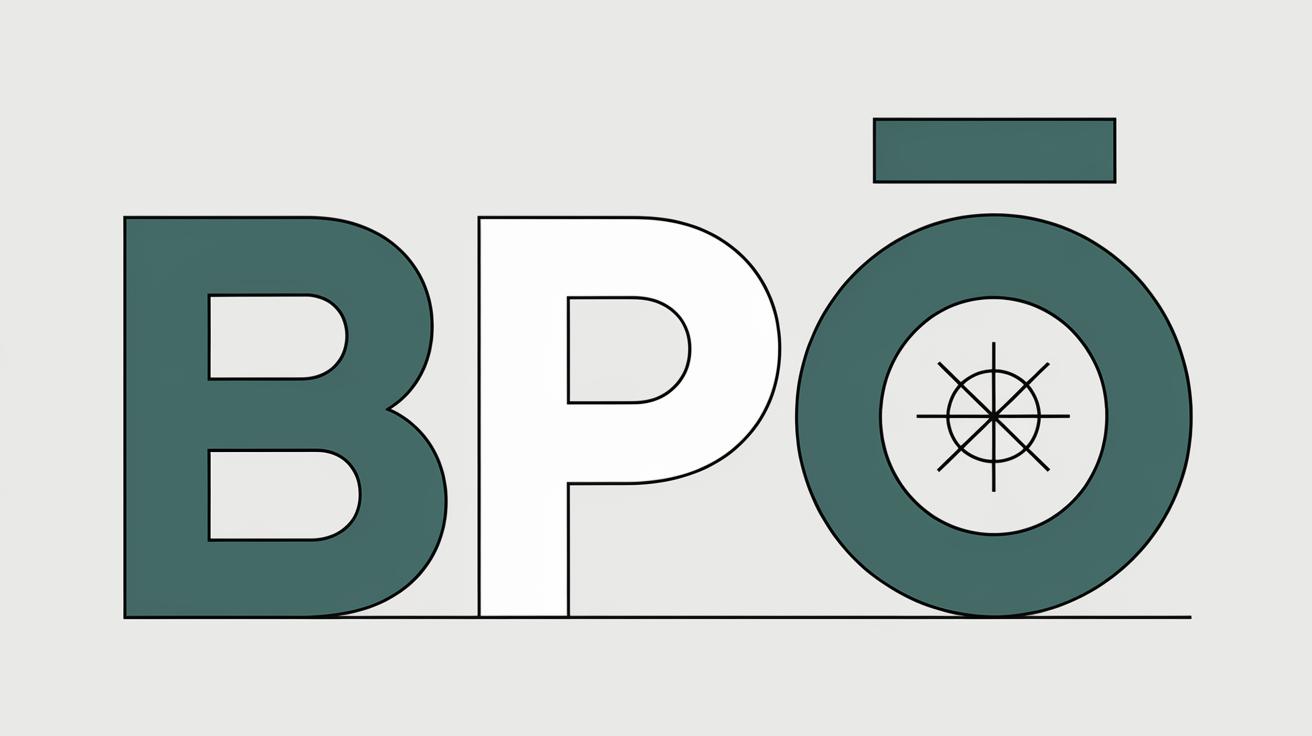Understanding Business Process Outsourcing (BPO)
Business Process Outsourcing (BPO) is a strategic practice where companies delegate specific business operations to third-party service providers. As globalization and technological advancements reduce geographical barriers, businesses increasingly find value in outsourcing processes to improve efficiency, cut costs, and focus on core activities. However, BPO comes with its own set of challenges and considerations. This blog post explores the fundamental aspects of BPO, shedding light on what it entails, the various types, its advantages, and potential drawbacks. Additionally, we discuss the nuances of BPO call centers and special considerations businesses should be aware of when venturing into outsourcing. A detailed table at the end will summarize the key points discussed, serving as a helpful reference for better understanding BPO’s dynamic landscape.
What Is Business Process Outsourcing (BPO)?
Business Process Outsourcing (BPO) refers to contracting specific business functions to an external service provider. Traditionally, BPO was primarily associated with industries such as manufacturing, where discrete activities like parts production or assembly were outsourced. However, with the rise of the digital economy, BPO has expanded into services like customer support, payroll, and IT management.
The primary aim of BPO is to allow businesses to focus on their core competencies by offloading non-core functions to specialized organizations. This strategic move can facilitate cost savings, operational efficiency, and access to expertise that otherwise may be unavailable internally. Over time, BPO has evolved to encompass a variety of industries, further fueling its growth and relevance in the modern business landscape.
Understanding Business Process Outsourcing (BPO)
At its core, BPO is a way for businesses to streamline operations by drawing on the efficiencies provided by third-party service providers. These providers are often located in regions with lower labor costs, allowing companies to gain a competitive edge through cost savings. BPO arrangements can be categorized primarily into front-office and back-office outsourcing.
Front-office outsourcing usually involves customer-facing services such as marketing, sales, and technical support. In contrast, back-office outsourcing deals with internal business functions like human resources, accounting, and IT services. By outsourcing these processes, companies can leverage external expertise while enhancing internal resource allocation for growth-focused projects.
Key Takeaways
Business Process Outsourcing is a versatile strategy that helps companies improve operational efficiencies by delegating specific tasks to external service providers. This approach can lead to significant cost reductions and allows businesses to stay focused on their core areas of expertise. Understanding the differentiation between front-office and back-office outsourcing can guide organizations in optimizing their strategic decisions.
By recognizing the key aspects of BPO, businesses can better prepare for and manage outsourcing relationships, ensuring beneficial outcomes for both the company and the outsourced service provider. This insight emphasizes the importance of strategic planning and relationship management in successful BPO ventures.
Important
While BPO offers numerous advantages, it requires a clear understanding of the processes involved and the ability to manage external relationships effectively. Companies must establish detailed contracts and performance metrics to ensure service quality and safeguard their interests.
Additionally, companies should conduct comprehensive research on potential service providers, evaluating factors like reliability, financial health, and cultural compatibility. It’s crucial to mitigate any risks associated with outsourcing by maintaining robust internal controls and dedicating resources to oversee the BPO relationship.
Special Considerations
Several factors should be considered when evaluating the suitability of BPO for a business. One critical factor is the proper identification of processes that are best suited for outsourcing. Not every business function is appropriate for outsourcing, and companies should assess which processes can be effectively moved to a third party without compromising quality or control.
Another special consideration is data security and privacy. As companies entrust sensitive information to third-party providers, ensuring robust security measures and compliance with legal regulations is paramount. Businesses must work closely with outsourcing partners to implement strong security protocols and establish clear guidelines to protect sensitive information.
The Attraction of BPO
Businesses are drawn to BPO for several compelling reasons. Cost reduction is often at the forefront, as outsourcing can significantly decrease labor expenses and overhead costs. Access to global talent pools also allows organizations to benefit from specialized expertise and skills not readily available locally.
Moreover, outsourcing enables companies to scale operations quickly and efficiently. BPO providers who already have established frameworks can expedite the growth of business functions without the need for extended recruiting and training periods. This flexibility is especially valuable for businesses looking to adapt to changing market demands rapidly.
Tip
When considering BPO, it is beneficial for organizations to engage in pilot programs with prospective partners. This approach allows companies to test the waters, evaluate the service provider’s capabilities, and make informed decisions before fully committing to a long-term outsourcing contract.
This not only minimizes risk, but also provides an opportunity to establish a collaborative relationship. Clear communication and feedback during this phase can help align expectations and set a solid foundation for future outsourcing endeavors.
Some Disadvantages of BPO
Despite its benefits, BPO is not without its challenges. One of the primary concerns is the potential loss of control over business functions. When processes are managed externally, companies may experience reduced oversight, which can impact quality and performance levels.
Cultural and time-zone differences between the client and the provider can also pose significant hurdles. Miscommunications or delays might occur, leading to dissatisfaction and potentially harming the company’s reputation. Companies should establish robust communication channels and contingency plans to mitigate these issues effectively.
Fast Fact
In 2021, the global BPO market size was valued at approximately $232 billion and is expected to grow rapidly, driven by increasing demand for efficient business solutions and advances in technology such as AI and data analytics.
This growth trajectory underscores the importance of BPO as a strategic asset in modern business practices, especially as industries evolve to meet emerging consumer and market needs.
What Is the Goal of BPO and What Are Its Types?
The primary goal of BPO is to enhance business efficiency and effectiveness by redistributing resources and concentrating on core activities. This realignment allows companies to leverage partner capabilities and achieve processes at scale, driving productivity and innovation.
There are multiple types of BPO, including offshore, nearshore, and onshore outsourcing. Offshore outsourcing involves contracting services to providers in distant countries, often to leverage cost advantages. Nearshore outsourcing refers to outsourcing to neighboring countries with similar time zones, and onshore outsourcing takes place within the company’s own country, offering better control and minimal cultural differences.
What Are the Advantages of BPO?
BPO offers numerous advantages, chief among them is cost efficiency. By outsourcing, companies can bypass expenses associated with recruitment, training, and infrastructure development. This is particularly beneficial for small and medium-sized enterprises that may lack resources to build extensive in-house capabilities.
Moreover, BPO enables businesses to access a vast talent pool with specialized skills, promoting higher levels of service and innovation. The ability to quickly scale operations without the logistical constraints of expanding internal teams also positions companies to respond more effectively to market dynamics and competitive pressures.
What Are the Types of BPO Companies?
BPO companies can be categorized based on the functions they provide and the industry they serve. For instance, there are finance and accounting outsourcing firms, IT outsourcing firms, and customer service providers, each specializing in delivering particular services.
Additionally, some BPO companies focus on specific industries such as healthcare, telecommunications, or retail, offering tailored solutions that meet sector-specific requirements. Businesses selecting a BPO provider should consider both the provider’s functional expertise and industry knowledge to ensure alignment with their strategic objectives.
What Is a BPO Call Center?
A BPO call center is one of the most well-known forms of business process outsourcing. These centers handle customer service operations such as inbound and outbound calls, email inquiries, and live chat support, ensuring customer queries and issues are managed efficiently.
BPO call centers are an essential component of many businesses’ customer relationship strategies, offering scalable solutions to manage fluctuating demand. Through outsourcing, companies can provide 24/7 customer support while reducing the costs associated with building and maintaining in-house call centers.
The Bottom Line
Business Process Outsourcing is an invaluable strategy aimed at enhancing business efficiency, reducing costs, and fostering innovation through external expertise. While it comes with potential drawbacks, careful planning and strategic partnerships can mitigate risks and maximize benefits.
Organizations considering BPO must weigh all factors, from vendor selection and contract management to data security and cultural compatibility, to ensure successful outsourcing outcomes. As BPO continues to evolve with advancements in technology, its role in shaping future business landscapes remains significant and impactful.
Lessons Learned
| Aspect | Details |
|---|---|
| Definition | BPO involves outsourcing specific business functions to third-party providers. |
| Goal | To enhance efficiency, focus on core activities, and reduce costs. |
| Advantages | Cost efficiency, access to skilled talent, scalability, and improved focus. |
| Disadvantages | Potential loss of control, communication issues, and cultural differences. |
| Special Considerations | Select appropriate processes for outsourcing, ensure security, establish effective communication. |
| Types of BPO | Offshore, nearshore, onshore; function-specific and industry-specific services. |
| BPO Call Center | Handles customer service operations; enables flexible, cost-effective support. |


